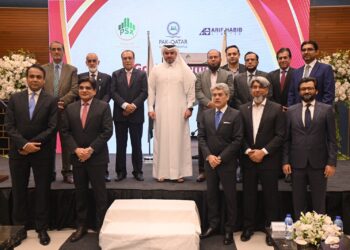Islamabad: In a decisive move to control sugar prices and prevent shortages in the domestic market, the federal government of Pakistan has finalized arrangements for the import of 85,000 metric tons of sugar. This import will be facilitated through letters of credit (LCs) opened by the government in partnership with SOCAR, the State Oil Company of Azerbaijan Republic. The sugar consignments are expected to reach Pakistani ports in the coming weeks and will be distributed in phases to ensure stability in supply and pricing.
Government Opens Letters of Credit (LCs)
According to official sources, all letters of credit (LCs) related to the import deal have been successfully opened and disbursed through relevant banking channels. This ensures that there will be no delay in payments or logistics once the shipments are dispatched.
By finalizing these LCs, the government has effectively secured a steady supply chain that will bring much-needed relief to the domestic market. This step reflects the state’s proactive approach in addressing inflationary pressures and supply chain disruptions caused by fluctuations in domestic production.
Role of SOCAR in the Trade Agreement
The sugar import is being carried out under a bilateral trade agreement signed with SOCAR. SOCAR, a major international trading entity, is widely recognized for its role in supplying energy and commodities across global markets. Its involvement guarantees reliability, timely deliveries, and compliance with global standards.
This agreement is part of Pakistan’s broader strategy of forging strategic trade alliances with foreign entities to meet its growing demand for essential commodities. SOCAR’s established global network ensures that the sugar consignments will be dispatched without delay, minimizing the risks of market instability in Pakistan.
Delivery Schedule: First Consignment to Arrive Soon
Under the agreement, the 85,000 metric tons of sugar will be delivered to Pakistan in phases. The first consignment is expected to arrive at Pakistani ports within the next few weeks, after which subsequent consignments will follow in a scheduled manner.
Phased delivery ensures that sugar enters the local market systematically, preventing sudden price drops or supply gluts, while also maintaining a consistent availability of stock over the coming months.
Why Import Sugar? Understanding the Shortage
The government’s decision to import sugar comes against the backdrop of domestic production shortfalls and rising prices in local markets. Several factors have contributed to this:
- Lower Cane Yields: Farmers in certain sugarcane-producing regions reported reduced yields due to unfavorable weather conditions.
- High Production Costs: Rising fuel, fertilizer, and electricity costs have driven up the price of domestically produced sugar.
- Hoarding and Speculation: Traders and middlemen have been accused of hoarding sugar stocks, creating artificial shortages and driving up prices.
- Population Growth and Demand: With growing urban populations, per capita sugar consumption continues to rise, outpacing domestic production capacity.
By importing sugar, the government aims to bridge the supply-demand gap and curb speculative practices that harm consumers.
Sugar Prices and Market Stabilization
The import of 85,000 metric tons of sugar is expected to stabilize sugar prices across the country. In recent months, retail sugar prices have shown considerable volatility, with sharp increases reported in several urban centers.
The government has assured that the imported sugar will be released into the open market at concessional rates, making it affordable for the general public. This move is likely to:
- Prevent hoarding and black marketing of sugar.
- Reduce the burden on consumers, especially low-income groups.
- Maintain a steady flow of sugar in wholesale and retail markets.
Distribution Mechanism and Quality Control
Authorities have emphasized that strict quality control measures will be enforced. The imported sugar will conform to global quality standards before being distributed in Pakistan.
Additionally, distribution will be carefully managed through:
- Utility Stores Corporation (USC): To provide sugar at subsidized rates to low-income households.
- Open Market Channels: To balance supply in wholesale and retail markets.
- Monitoring Systems: To ensure that sugar is not diverted to hoarders or smuggling networks.
This dual distribution strategy aims to provide direct relief to consumers while also stabilizing the broader market.
Economic Implications of the Import
While the import will help stabilize domestic sugar prices, it also carries economic implications that the government must balance:
- Foreign Exchange Outflow: Imports will increase the demand for foreign currency, potentially pressuring Pakistan’s foreign reserves.
- Impact on Local Producers: Domestic sugar mill owners may face pricing pressure once imported sugar enters the market at concessional rates.
- Consumer Relief: For ordinary citizens, stable prices will improve affordability and reduce household stress.
Economists argue that while short-term imports are necessary to maintain stability, Pakistan must also invest in long-term agricultural reforms to reduce dependence on sugar imports.
Sugar and Pakistan’s Agriculture Economy
Sugarcane is one of Pakistan’s major cash crops, cultivated primarily in Punjab, Sindh, and Khyber Pakhtunkhwa. The sugar industry is among the largest agro-based sectors, employing millions of farmers and workers.
However, the industry has long faced challenges:
- Outdated Farming Practices: Low productivity compared to global averages.
- Water Shortages: Sugarcane is water-intensive, making it less sustainable amid Pakistan’s water scarcity crisis.
- Policy Inconsistencies: Frequent changes in government policies on support prices, subsidies, and exports create uncertainty.
Experts emphasize that while imports provide short-term relief, long-term stability requires boosting local sugarcane yields, modernizing mills, and diversifying agricultural production.
Political and Social Dimensions
Sugar has always been a politically sensitive commodity in Pakistan. Rising sugar prices often trigger public protests and serve as a rallying point for opposition parties against the sitting government.
In recent years, sugar scandals involving allegations of hoarding, price manipulation, and undue subsidies have dominated headlines. By securing imports and controlling prices, the government seeks not only to provide economic relief but also to maintain political stability.
Expert Opinions on the Import Decision
Economic and trade analysts have expressed mixed views on the government’s move:
- Supportive View: Many believe this is a timely step to ensure stability in prices and prevent a full-blown sugar crisis.
- Critical View: Some argue that continuous reliance on imports reflects weak domestic planning and lack of reforms in the agriculture sector.
- Balanced Perspective: Experts suggest that imports should be accompanied by long-term investments in local production to avoid recurring crises.
Conclusion
The government’s decision to import 85,000 metric tons of sugar through SOCAR reflects a proactive approach to preventing shortages and stabilizing prices in the domestic market. By ensuring that sugar is imported in phases, distributed fairly, and sold at concessional rates, authorities aim to shield consumers from inflationary pressures.
However, while imports provide short-term relief, sustainable solutions lie in strengthening Pakistan’s agricultural sector, improving sugarcane productivity, and enforcing stricter market regulations. Until then, reliance on imports will remain an essential but temporary tool in managing the nation’s sugar demand.
For now, the arrival of sugar consignments in the coming weeks is expected to bring much-needed relief to households across Pakistan, especially as demand rises in anticipation of festivals and seasonal consumption.

























